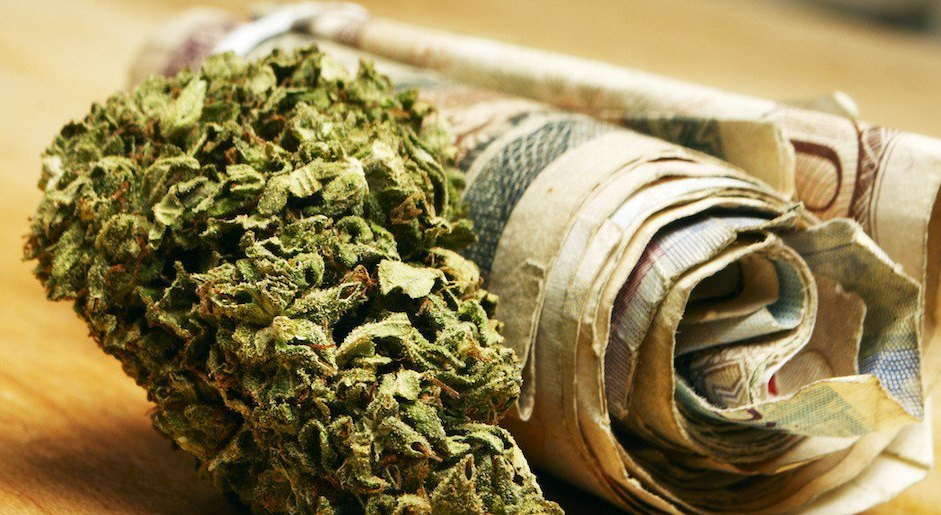burnin1
Well-Known Member
From thedailycaller.com
Myth Of Big Marijuana - Why Corporations Arent Taking Over The Weed Business

Guy Bentley Reporter
Myth Of Big Marijuana - Why Corporations Arent Taking Over The Weed Business

Guy Bentley Reporter
Fears that giant corporations will take over Americas burgeoning marijuana industry are massively overblown, according to a report by the Brookings Institution.
As more states legalize marijuana and businesses and entrepreneurs look to capitalize on the drugs legal status, marijuana opponents are voicing concerns the substance could morph into the next big tobacco.
Talk of big marijuana has made it into headlines and opinion pieces as skeptics fear the rise of a new corporate lobby pursuing profits above all else and manipulating the political process.
But according to scholars at Brookings, these fears have little basis in reality and theres no sign of so-called big marijuana on the horizon. A report titled Worry about bad marijuana-not Big Marijuana, by John Hudak and Jonathan Rauch makes the case against this kind of alarmism.
As businesses become established in the marijuana sector, the industry will remain highly diverse even if big corporations do eventually emerge, according to the paper.
The Big Marijuana rubric is more misleading than helpful as a guide to policy because it oversimplifies and stereotypes what is, in reality, a continuum of business scales and structures, say Brookings scholars. Regulators and politicians are informed by the countrys experience with big tobacco and are eager to ensure its not replicated with marijuana.
Marijuana products and businesses are also likely to experience an intense degree of scrutiny thanks to their novelty and decades of criminalization.
As a consequence, the marijuana business is highly unlikely to resemble anything close to the big tobacco giants during their heyday. A more realistic model is the alcohol market, where regulations are mostly state-based and combine mandatory and voluntary measures to ensure industry standards are upheld.
This model of regulation has proven successful over time and hasnt crushed competition in the industry. Not only will small businesses flourish in future marijuana markets, but the emergence of some corporations in the sector will likely benefit consumers.
Corporatization, though not without its hazards, has considerable upsides. It brings advantages in terms of public accountability and regulatory compliance, product safety and reliability, market stability, and business professionalism, say Brookings scholars.
Policy should concern itself with harmful practices, not with industry structure, and it should begin with a presumption of neutrality on issues of corporate size and market structure. Attempts to block corporatization are likely to backfire or fail. For policymakers, the concern should be bad marijuana, not big marijuana.

http://dailycaller.com/2016/06/19/myth-of-big-marijuana-why-corporations-arent-taking-over-the-weed-business/
As more states legalize marijuana and businesses and entrepreneurs look to capitalize on the drugs legal status, marijuana opponents are voicing concerns the substance could morph into the next big tobacco.
Talk of big marijuana has made it into headlines and opinion pieces as skeptics fear the rise of a new corporate lobby pursuing profits above all else and manipulating the political process.
But according to scholars at Brookings, these fears have little basis in reality and theres no sign of so-called big marijuana on the horizon. A report titled Worry about bad marijuana-not Big Marijuana, by John Hudak and Jonathan Rauch makes the case against this kind of alarmism.
As businesses become established in the marijuana sector, the industry will remain highly diverse even if big corporations do eventually emerge, according to the paper.
The Big Marijuana rubric is more misleading than helpful as a guide to policy because it oversimplifies and stereotypes what is, in reality, a continuum of business scales and structures, say Brookings scholars. Regulators and politicians are informed by the countrys experience with big tobacco and are eager to ensure its not replicated with marijuana.
Marijuana products and businesses are also likely to experience an intense degree of scrutiny thanks to their novelty and decades of criminalization.
As a consequence, the marijuana business is highly unlikely to resemble anything close to the big tobacco giants during their heyday. A more realistic model is the alcohol market, where regulations are mostly state-based and combine mandatory and voluntary measures to ensure industry standards are upheld.
This model of regulation has proven successful over time and hasnt crushed competition in the industry. Not only will small businesses flourish in future marijuana markets, but the emergence of some corporations in the sector will likely benefit consumers.
Corporatization, though not without its hazards, has considerable upsides. It brings advantages in terms of public accountability and regulatory compliance, product safety and reliability, market stability, and business professionalism, say Brookings scholars.
Policy should concern itself with harmful practices, not with industry structure, and it should begin with a presumption of neutrality on issues of corporate size and market structure. Attempts to block corporatization are likely to backfire or fail. For policymakers, the concern should be bad marijuana, not big marijuana.

http://dailycaller.com/2016/06/19/myth-of-big-marijuana-why-corporations-arent-taking-over-the-weed-business/



